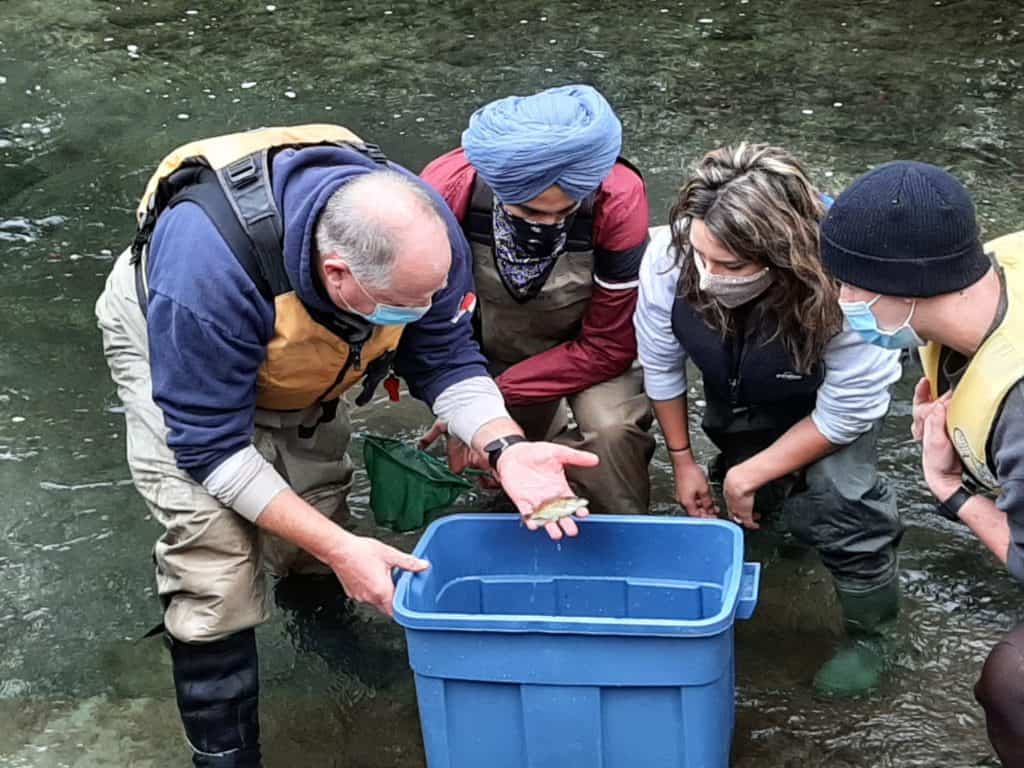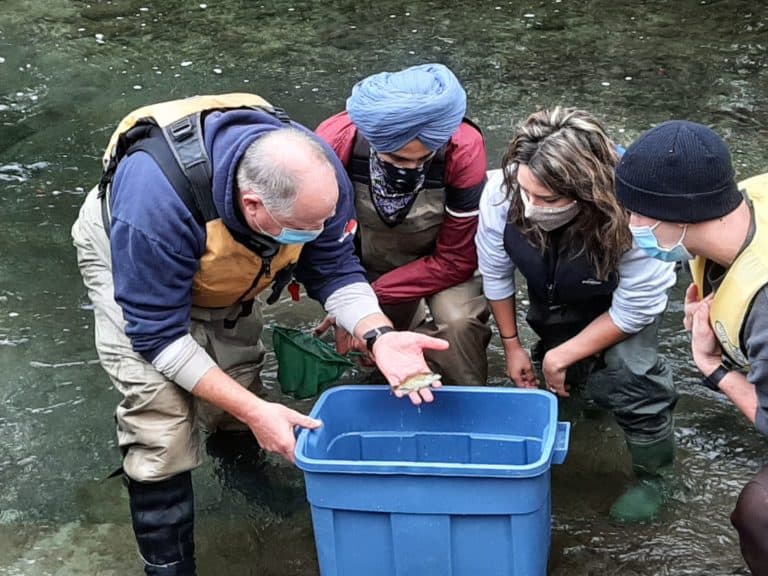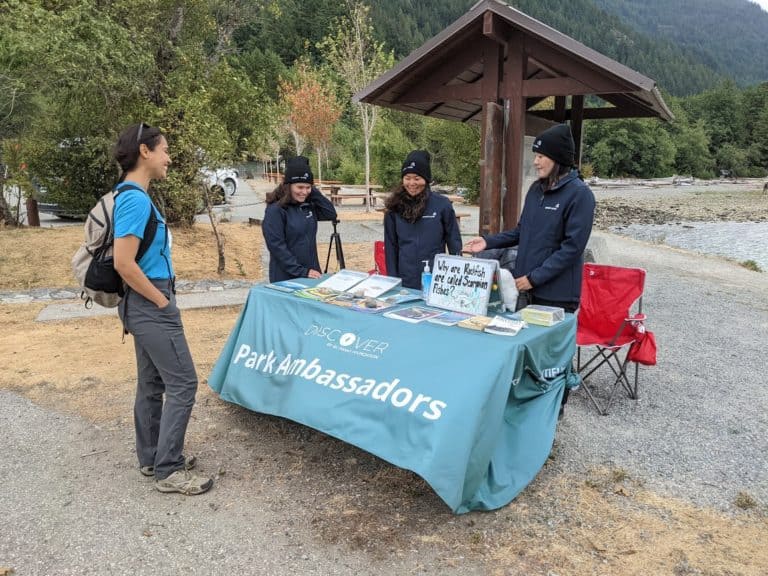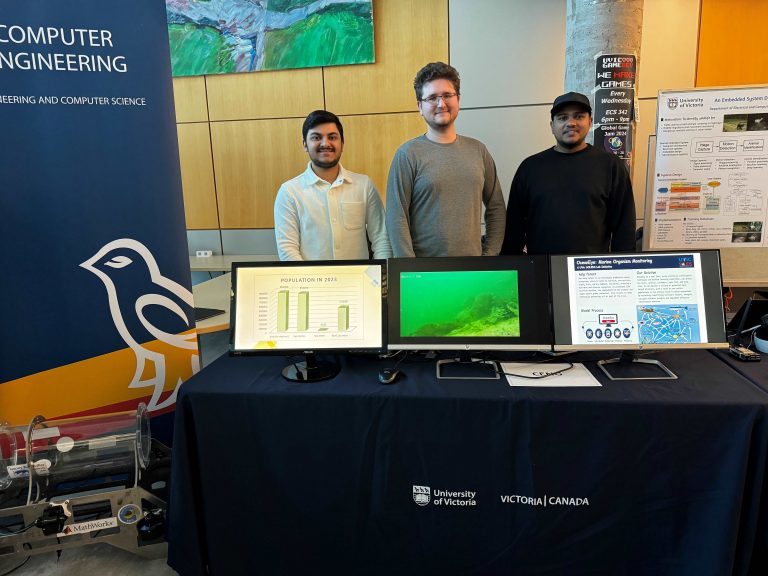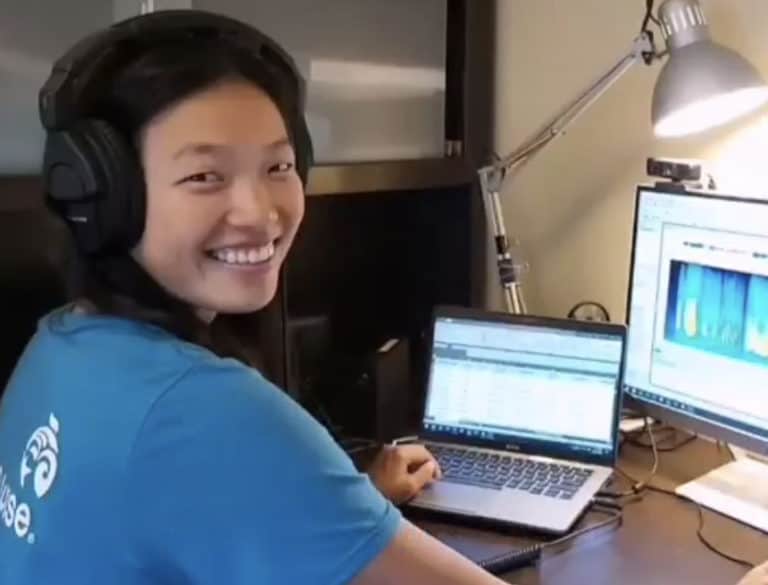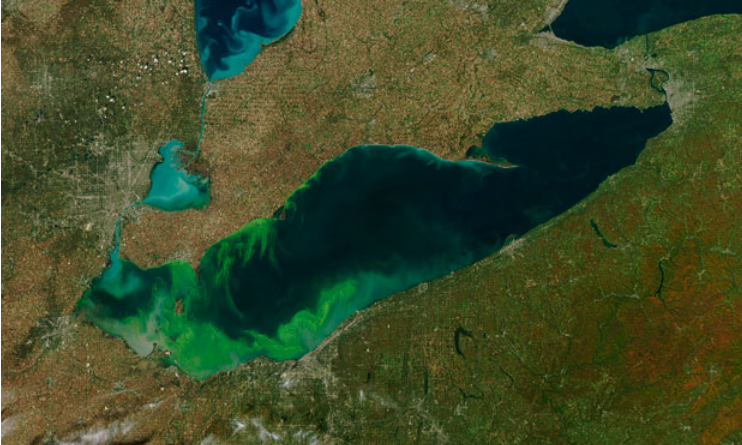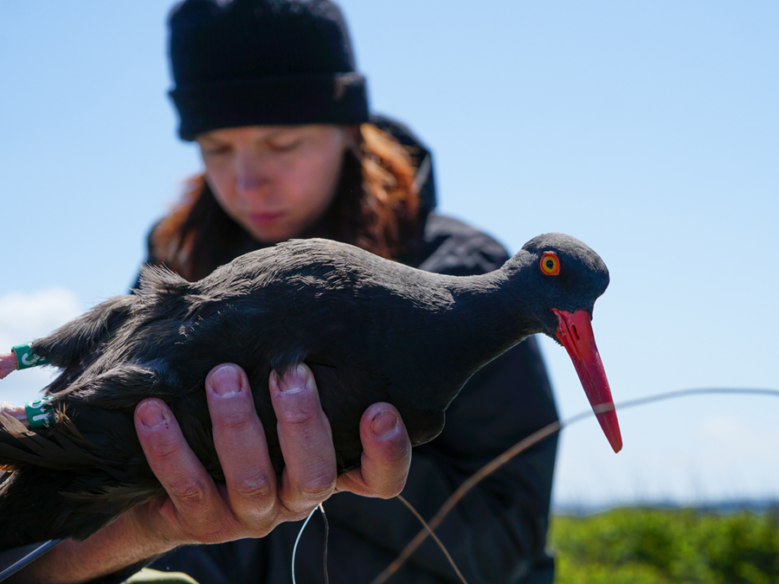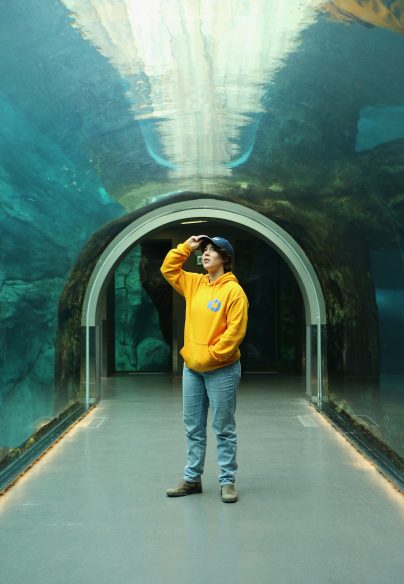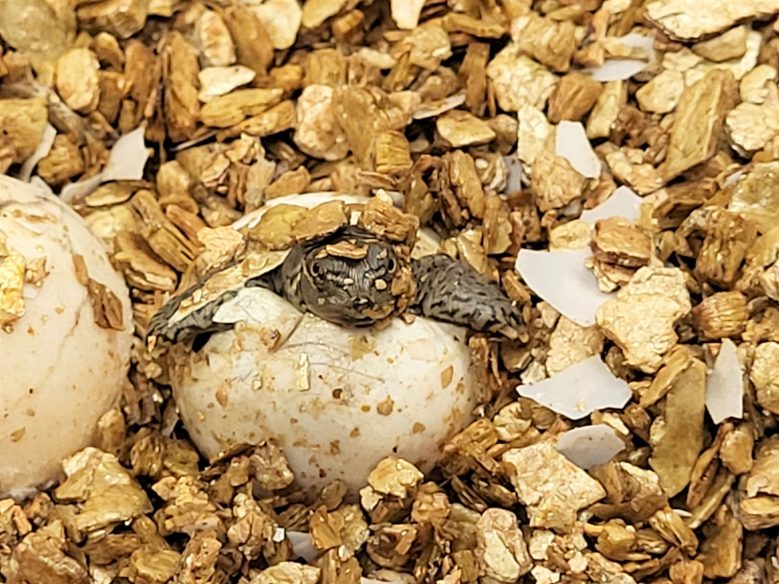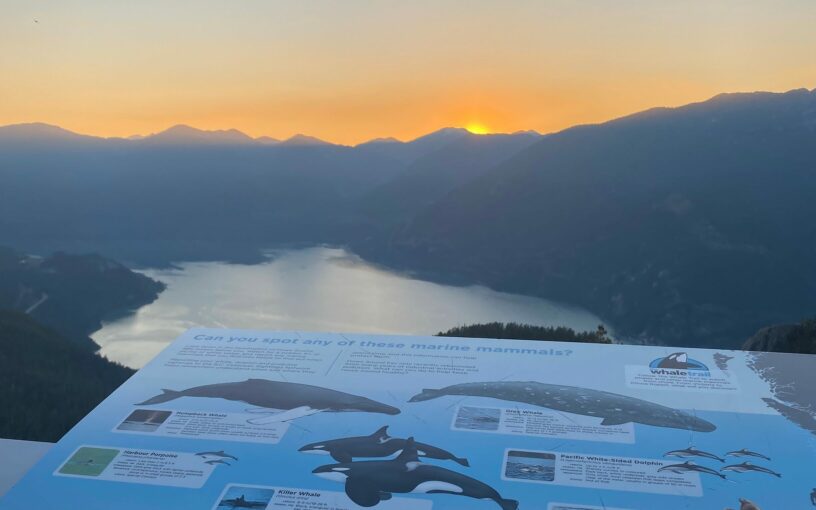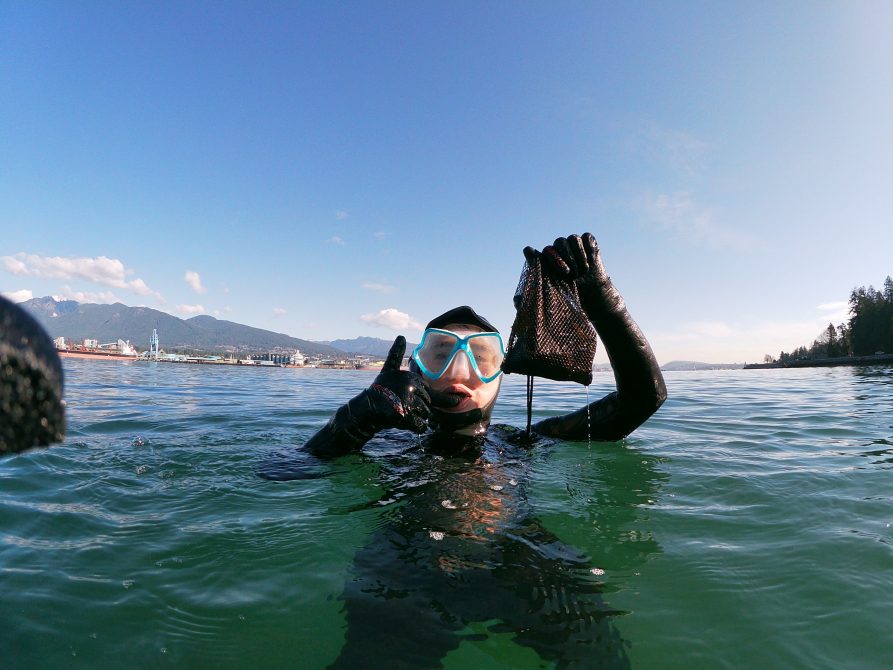
Four Fascinating Facts About Kelp You Might Not Know
Meet Noeli Urud: A Passionate Environmental Science Graduate and Seaforestation Advocate
Noeli Urud, a recent BSc Environmental Science graduate, is deeply passionate about conservation and the intricate relationships between people, the land, and waters. She explores place-based approaches in environmental management and community resilience building. In the fall of 2023, she completed a three-month Ocean Pathways placement with Ocean Wise’s Seaforestation initiative. Read on to discover the valuable insights she gained during her time with Ocean Wise on seaforestation and kelp restoration!
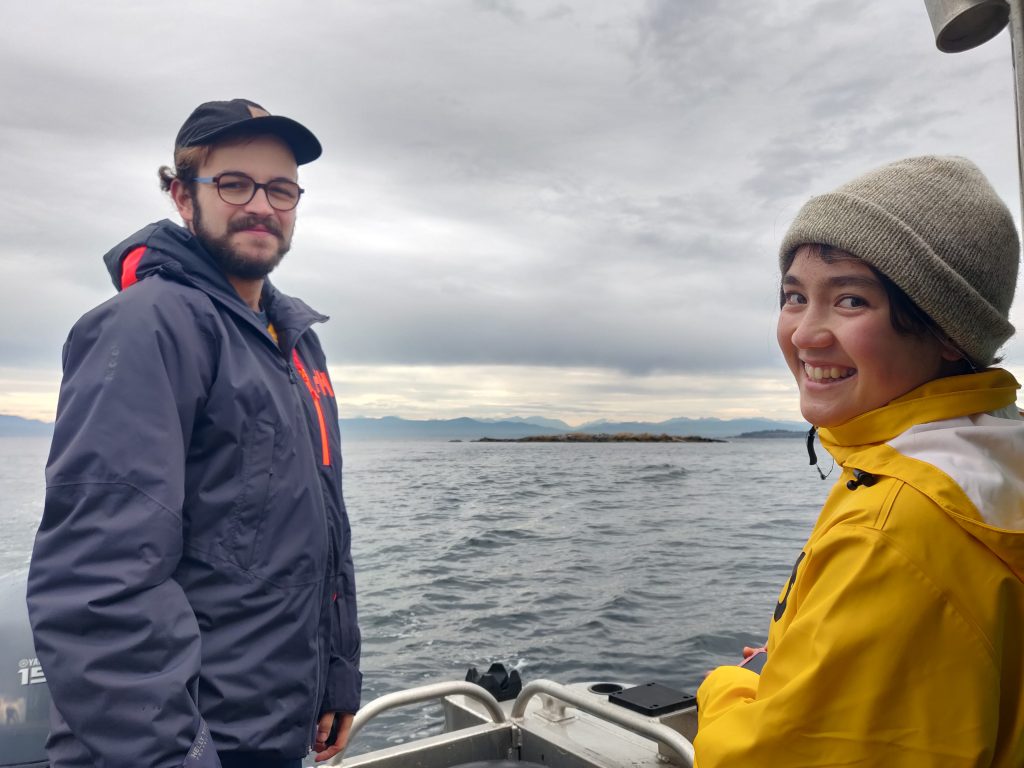
Four Fascinating Facts About Kelp You Might Not Know
First encounters with seaweed can be unpleasant, whether you are wading into the ocean for a swim or trying to scale a slippery rock. However, during my three-month placement with Ocean Wise’s Seaforestation Initiative, I have come to appreciate seaweed, especially kelp, for its fascinating life cycles and ecological properties. Here are four fun facts about kelp that might change your mind – let’s dive in!
- Despite their appearance, kelp are not true plants (kingdom Plantae) as they do not have roots. Instead, they are a subset of the algae group mainly classified within kingdom Chromista. Kelp are members of the brown algae club and like to grow on rocky shores and in cold, nutrient-rich waters, such as those on the West Coast. However, changes in ocean temperature, predation dynamics, nutrient availability are threatening kelp populations. This is where seaforestation comes in: in the restoration, planting, management, and care of underwater forests.
- British Columbia is home to over 30 species of kelp (Order Laminariales) making it one of the most diverse regions for kelp! You may be familiar with canopy-forming species like giant kelp (Macrocystis integrifolia) or bull kelp (Nereocystis luetkeana) but many more species thrive along the ocean floor. Coastal communities have used these species for thousands of years as sources of food, medicine, fishing line and storage. Ocean Wise’s seaforestation team collaborates with various Indigenous and local community partners to support replanting initiatives, focusing on sugar kelp (Saccharina latissima) and bull kelp in British Columbia.
- Kelp spend half of their lives in a microscopic stage, making kelp forests appear “invisible” in the winter! This seasonal reproductive cycle is key to the outplanting process. In early fall, the team goes free diving to harvest reproductive patches (sori) and brings them back to the nursery in West Vancouver (Pacific Science Enterprise Centre). They then induce an artificial spore release and provide substrate for the kelp to attach, as they do not have roots. The kelp then grows a few inches before being outplanted during the winter, with the hope they will release their spores the following year and “seed” the second generation, eventually forming a forest.
- Growing kelp is more challenging than it appears: the science and practice of seaforestation and kelp restoration are still in their infancy. Various methodologies are being trialed. At the Pacific Science Enterprise Centre (PSEC), they have been experimenting with green gravel which uses inoculated rocks and shells to facilitate outplanting directly from the boat. Contrary to its name, Ocean Wise’s green gravel is more brown than green! The team has also invested in red-light storage, allowing the cultivation of kelp beyond its seasonal limitations by “freezing” it in the gametophyte phase before it fully develops. This method provides a reliable seed source throughout the year and serves as a biobank to preserve genetic diversity for future populations. One thing I have learned during my placement is that the seaforestation team does not shy away from innovative approaches in restoration practices.
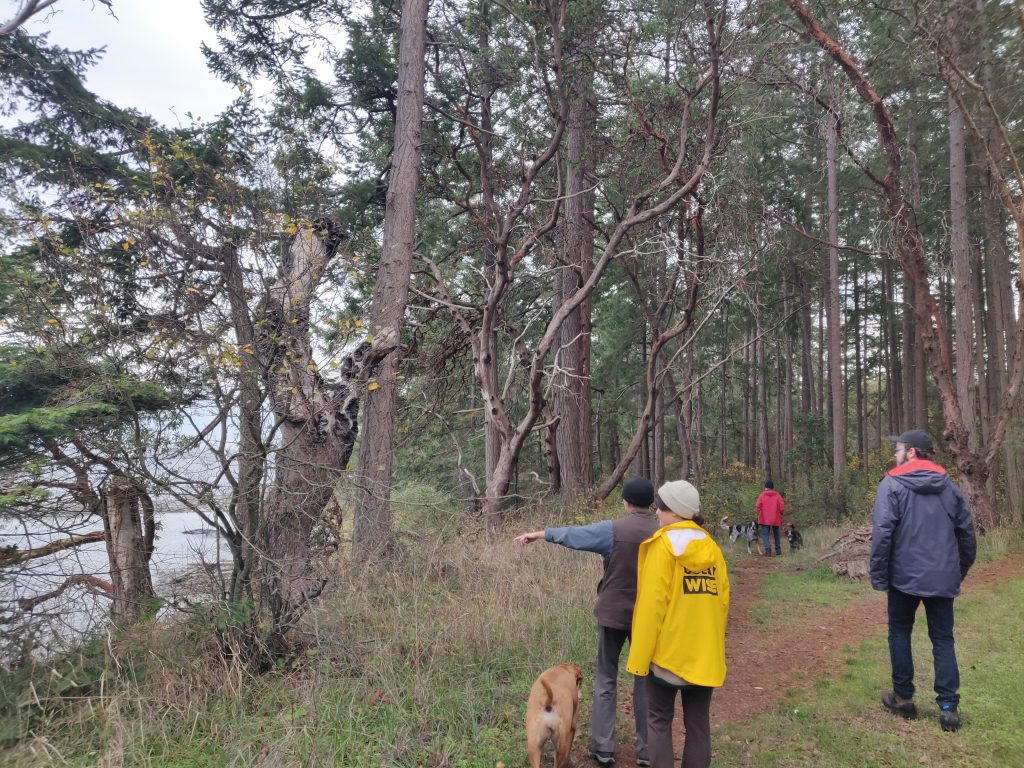
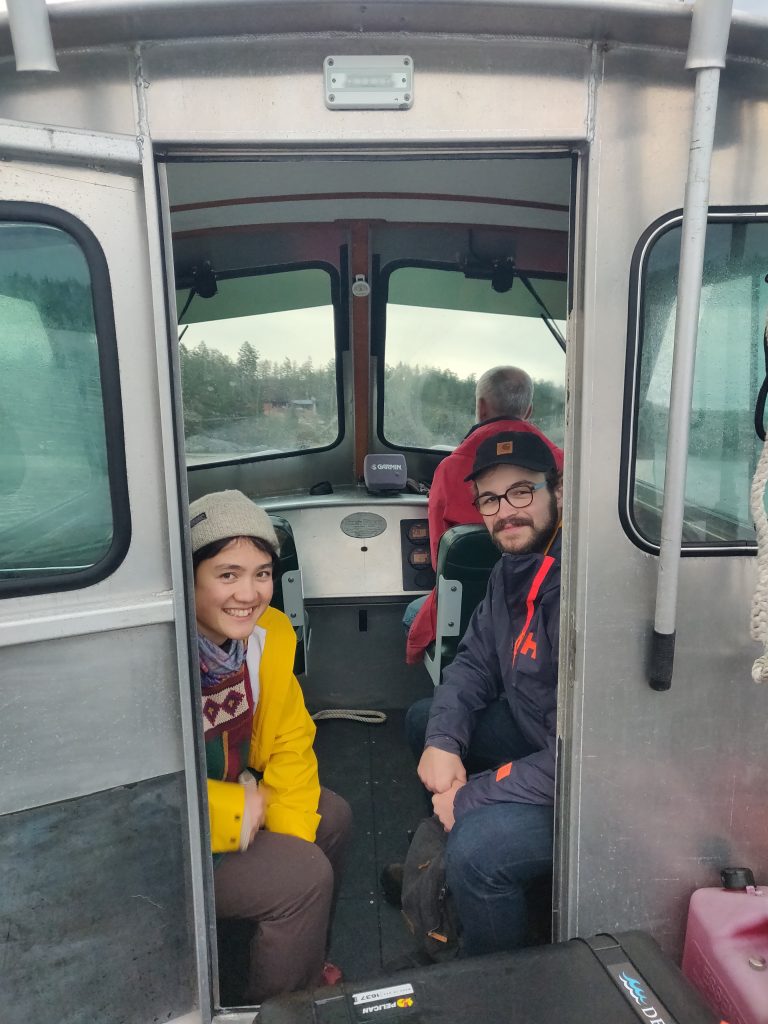
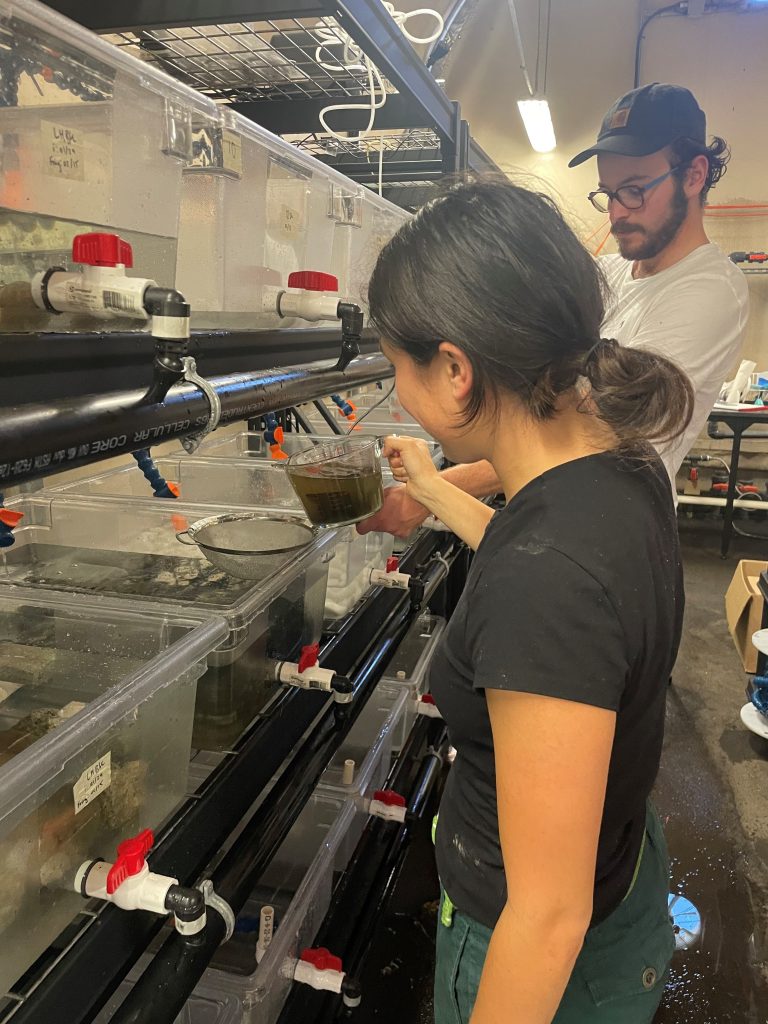
Seaforestation and Kelp Restoration
Seaforestation stands out as a critical nature-based solution to improve ocean health, create sustainable livelihoods and accelerate our fight against climate change. Our seaforestation and kelp restoration efforts focus on maximizing climate, biodiversity, and social benefits. I am deeply grateful for the opportunity to work with and learn from this dedicated team. This experience has provided a deeper exploration into what it means to restore an ecosystem, and the community partnerships required to do so. I hope this glimpse into the captivating world of kelp has sparked your interest, encouraging you to take a closer look the next time you find yourself on rocky shores!
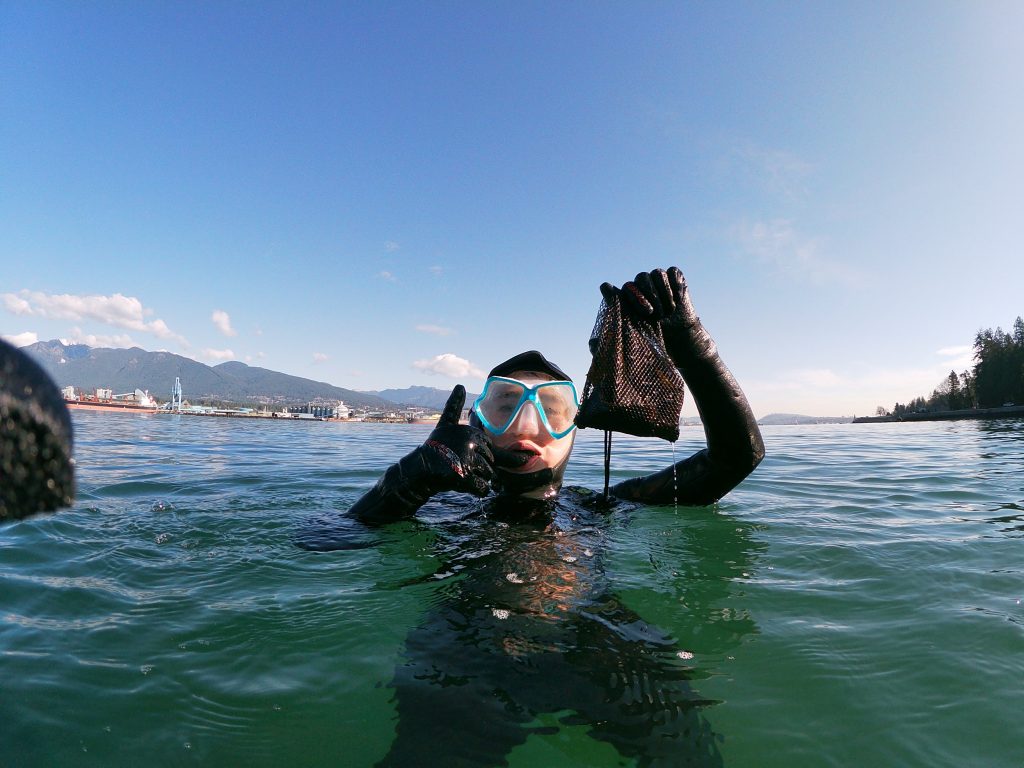
Posted August 30, 2024 by Alex Leroux
